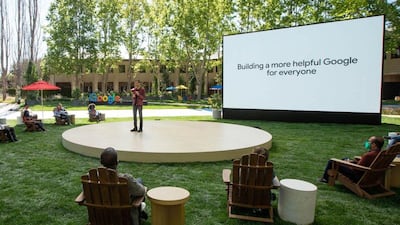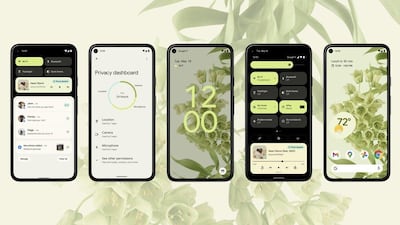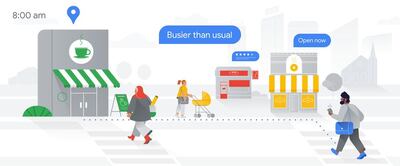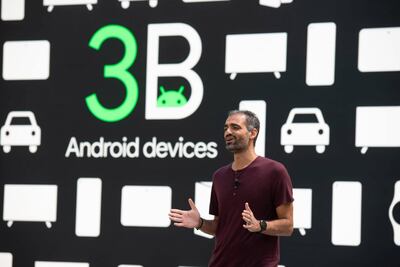Alphabet-owned Google launched a number of new features including a redesigned Android operating system (OS), tools to protect personal data, updated Maps and a new partnership with Samsung at the company’s online developer conference on Tuesday.
The conference, which was cancelled last year due to the Covid-19 pandemic, saw a partial attendance from Google employees who watched the keynote address from the lawn of the company’s Mountain View campus.
Here are five takeaways from the conference.
Android undergoes biggest change in history
Google released the first beta version of its new OS, Android 12. It includes the biggest design change in Android's history, the company said.
“We rethought the entire experience, from the colours to the shapes, light and motion ... the result is that Android 12 is more expressive, dynamic and personal than ever before,” said Sameer Samat, vice president of product management, Android and Google Play.
Android 12 will let users check which apps are accessing their data and they can control the extent of data that they want to share. It has added a new indicator to the top right of the users’ status bar to show which apps are accessing their microphone or camera.
Today, Android is used in more than 3 billion active devices around the world.
New Maps update
Google announced new updates to the Maps, which will allow users to easily navigate, find local landmarks, spot busy areas and find tourist attractions.
Maps will also be able to show a user how busy an area is compared to others.
The new updates will allow users take the fastest routes and “identify which one is likely to reduce your chances of encountering a hard-braking moment”, Oren Naim, director of product, Google Maps, said.
“We will automatically recommend that route if the ETA [estimated time of arrival] is the same or the difference is minimal.”
Merging with Samsung to challenge Apple Watch
To challenge the dominance of Apple Watch, which has been the best-selling smartwatch for many years, Google has teamed up with Samsung. It has merged its Wear OS with South Korean consumer electronics company's Tizen OS.
“We are bringing the best of Wear and Tizen into a single, unified platform,” said Bjorn Kilburn, director of product management, Wear, at Google.
“By working together we have been able to take strengths of each and combine them into an experience that has faster performance, longer battery life and more of the apps you love available for the watch.”
Fixing your password in Chrome
Google’s web browser Chrome will now help users change their passwords with a single tap in an effort to minimise the chances of data theft and compromised identity.
“On supported sites, whenever you check your passwords and Chrome finds a password that may have been compromised, you will see a ‘change password’ button,” Patrick Nepper, senior product manager, Google Chrome, said.
“When you tap the button, Chrome will not only navigate to the site, but also go through the entire process of changing your password.”
Automated password change feature is already available in the US and will become available across more countries in the coming months, the company said.
Putting users in control of their data
Google has introduced a new, ‘quick delete’ option to delete the last 15 minutes of your search history. In Google Photos, the company has also rolled out a ‘Locked Folder’ feature – a password-protected space where select photos can be saved separately.
“Our focus on data minimisation pushes us to do more, with less data,” said Sundar Pichai, chief executive of the company.
“We strictly uphold responsible data practices so every product we build is private by design. And we create easy to use privacy and security settings so you are in control.”





